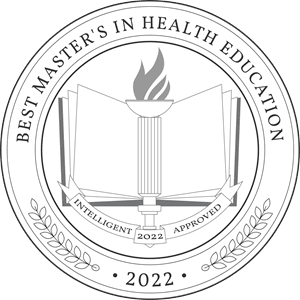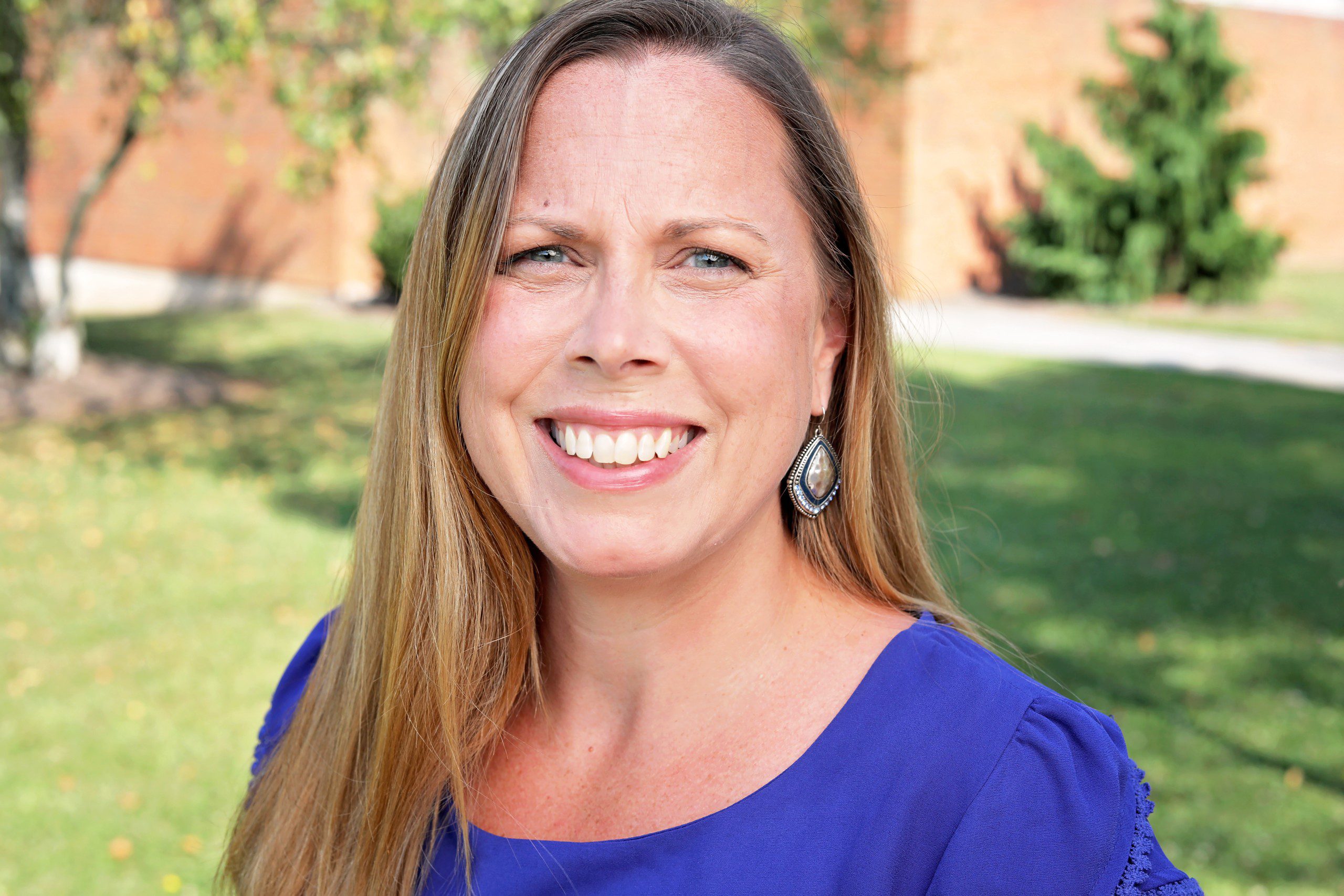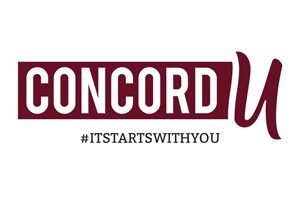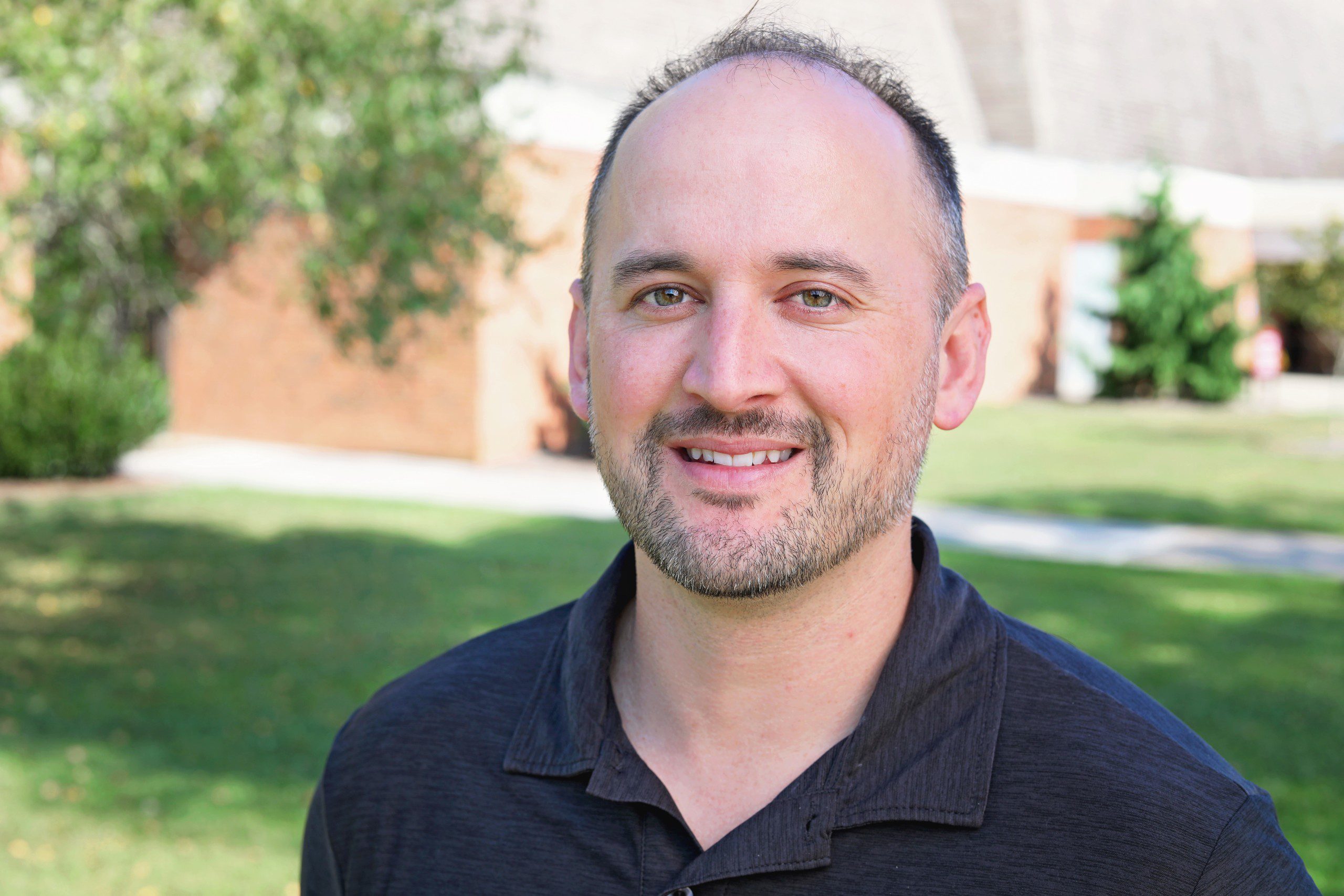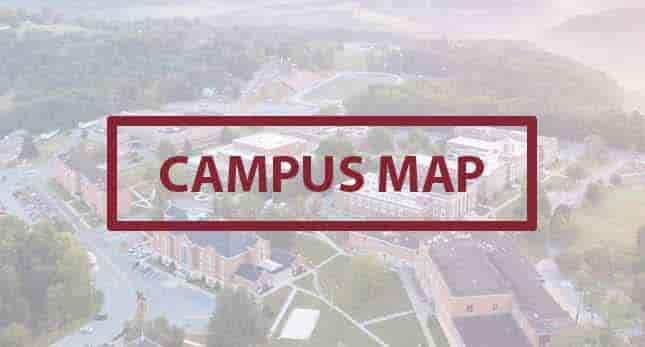Master of Arts in Health Promotion
What is Health Promotion?
The goal of health promotion is to empower individuals to make informed, healthy choices, in healthy environments. Activities in health promotion can include educating individuals across the lifespan, working to change environments, or shaping policy that promotes healthy lifestyles and disease prevention.
Career Opportunities
Health promotion is a growing field. Graduates from our program can find employment in Schools, Community or Public Health Centers, Worksite Wellness, Hospitals or Insurance companies, and many more. Careers in health promotion have a much faster than average projected job growth according to the Bureau of Labor Statistics
Program Highlights
Our program is flexible with both a 100% online and hybrid option. The program can be completed in one OR two years. We have flexible capstone options to accommodate your current life and future career goals. The Master of Arts in Health Promotion at Concord University will prepare you for the Certified Health Education Specialist exam.
The MA in Health Promotion at Concord University has also received national recognition. It was recognized as the Best Online Program and ranked 2nd as the top 24 Masters in Health Education Degree Programs by Intelligent.com. It was also ranked second in 2023’s Best Online Masters Degrees in Health Education.
MAHP Learning Goals:
- Analyze theory, research, and practice in health behavior, health education, and health promotion in information curriculum, instruction, and assessment.
- Identify, decide and apply appropriate theory and research into practice and instruction.
- Identify the diverse health needs of specific populations including the state of West Virginia‘s aging population.
- Identify those behaviors that foster health from those that are detrimental to the individual/populace health.
- Design, develop, implement, and evaluate appropriate health interventions for specific populations.
- Identify evidence-based practices and resources to enhance health promotion.
- Develop advocacy skills and techniques for a variety of societal sectors and populations.
- Develop an understanding of grant writing and the importance of external funding in health promotion.
The Master of Arts (MA) in Health Promotion is a 33 credit hour program that will prepare highly trained health educators to meet the health needs of our society in a variety of work settings. This program is designed for professionals who want to enhance their skills in promoting health strategies that will lead to improved disease prevention. The MA in Health Promotion Program is appropriate for those with undergraduate degrees in a variety of areas including health education, health promotion, public health, sociology, psychology, allied health fields, and environmental health studies. The program emphasizes primary prevention and the empowerment of communities to address their own health and social needs in ways that can improve the health status of the greater community and reduce health care costs. Students are introduced to the unique opportunity they have as health professionals to effect individuals’ knowledge, attitudes, and behaviors related to health issues, and are trained in health promotion strategies and intervention development. Students who graduate from the program will be prepared and qualified to take the Certified Health Education Specialist examination in order to obtain the CHES credential.
The Concord University Master of Arts in Health Promotion has an extremely flexible format with several options to accommodate your current responsibilities and future goals. It is an excellent fit for students with busy lives and other responsibilities.
One-Year Fast Track or Traditional Two-Year Plans
The program can be completed in a one-year fast track for motivated students or a more traditional two-year format. Students also have the option to start in the spring and finish in one and a half or two and a half years. Potential plans of study are listed in the student handbook, section III. Please contact Dr. Jill Nolan with any questions.
Online or Hybrid Option
The Master of Arts in Health Promotion Program can be completely entirely online or students can take advantage of the new Hybrid option where content is delivered online and face to face. With the new hybrid option, the Master of Arts in Health Promotion is a great option for international students looking for an on-campus experience.
Possible Plans of Study
| MAHP Fast Track: One year Plan of Study | ||
|---|---|---|
| Fall (12 hours) | Spring (12 hours) | Summer (9 hours) |
| HLTH 500 HLTH 501 HLTH 510 HLTH 515 |
HLTH 502 HLTH 503 HLTH 504 HLTH 506 |
HLTH 505 HLTH 570 (6 hours) |
| MAHP Two-year Plan of Study | ||||
|---|---|---|---|---|
| Fall 1 | Spring 1 | Summer | Fall 2 | Spring 2 |
| HLTH 500 HLTH 501 |
HLTH 506 HLTH 503 HLTH 504 |
HLTH 502 HLTH 505 |
HLTH 510 HLTH 515 |
HLTH 570 (6 hours) |
| MAHP Spring Start Plan of Study | |||
|---|---|---|---|
| Spring 1 | Summer | Fall 2 | Spring 2 |
| HLTH 506 HLTH 503 HLTH 504 |
HLTH 502 HLTH 505 |
HLTH 510 HLTH 515 HLTH 500 HLTH 501 |
HLTH 570 (6 hours) |
For unconditional acceptance into the Master of Arts in Health Promotion applicants must:
- Hold an undergraduate degree with a minimum 2.75 GPA from a regionally accredited institution.
- Students with a lower GPA are encouraged to apply and will be considered for conditional acceptance.
- Provide official transcripts from all undergraduate institutions (with the exception of Concord University).
- Complete the Application for Admission, and pay the $30.00 fee.
Applications are accepted year round.
This handbook provides information about the Master of Arts in Health Promotion at Concord University. If you have any questions about the content in this handbook, please contact the Master of Arts in Health Promotion Program Coordinator or Program Manager.
Master of Arts in Health Promotion Overview
This program requires thirty-three (33) credit hours for completion. The curriculum is designed with a systematic and sequential focus. After completion of twenty-seven (27) hours of preparatory course work, students enroll in the research capstone course, HLTH 570. Unless provided a special exemption by the Program Coordinator, students must complete ALL course work before enrolling in HLTH 570. To successfully matriculate through HLTH 570, students are required to complete one of the following:
- Option 1: Develop, implement, and evaluate a community-based intervention project for a specific population. Students will be required to accurately plan, implement in an actual setting, evaluate impact, and subsequently, refine the intervention.
- Option 2: Based on thorough literature review, develop a research question that will be explored through analysis of primary or secondary data.
- Option 3: Conduct a systematic review surrounding a health promotion topic of interest. This will include an exhaustive review of the literature and inclusion of relevant articles.
Admission into the Program
For unconditional acceptance into the Master of Arts in Health Promotion applicants must:
- Hold an undergraduate degree with a minimum 2.75 GPA from a regionally accredited institution,
- Provide official transcripts from all undergraduate institutions (with the exception of Concord University)
- Provide two (2) general letters of recommendation
- Complete the general Application for Admission, and submit the application fee
Once all admission requirements are met, the student will receive a letter of unconditional acceptance to the MA in Health Promotion Program and can then begin coursework.
Applicants who do not meet admission requirements may submit a letter of appeal to the Master of Arts in Health Promotion Coordinator for review. If the appeal is approved, the Coordinator will specify requirements for conditional admission to complete up to nine graduate credits with specific stipulations such as earning a GPA of 3.0 or better in the Master of Arts in Health Promotion.
Program of Study
The MA in Health Promotion consists of 33 hours; including 27 hours of content specific course work and a 6-hour capstone course. Students have several options for completion of the MA HP program but most commonly follow the course rotation shown below, beginning the program in the fall and completing in two years.
MAHP Two-year Plan of Study
| Fall 1 | Spring 1 | Summer | Fall 2 | Spring 2 | |
|---|---|---|---|---|---|
| HLTH 500 HLTH 501 |
HLTH 506 HLTH 503 HLTH 504 |
HLTH 505 HLTH 502 |
HLTH 510 HLTH 515 |
HLTH 570 (6 hours) |
Students who start in the spring can complete the program in either one and a half or two and a half years. Students would follow the schedules shown below, respectively.
MAHP Spring Start One and a Half Year Plan of Study
| Spring 1 | Summer | Fall 1 | Spring 2 |
|---|---|---|---|
| HLTH 503 HLTH 504 HLTH 506 |
HLTH 500 HLTH 505 HLTH 502 |
HLTH 501 HLTH 515 HLTH 510 |
HLTH 570 (6 hours) |
| 9 Hours | 9 Hours | 9 Hours | 6 Hours |
MAHP Spring Start Two and a Half Year Plan of Study
| Spring 1 | Summer | Fall 1 | Spring 2 | Summer | Fall 2 | Spring 3 |
|---|---|---|---|---|---|---|
| HLTH 502 HLTH 503 |
HLTH 500 | HLTH 515 HLTH 501 |
HLTH 504 | HLTH 510 | HLTH 506 HLTH 505 |
HLTH 570 (6 hours) |
| 6 Hours | 3 Hours | 6 Hours | 3 Hours | 3 Hours | 6 Hours | 6 Hours |
There is also a fast-track option* for students who are motivated and performed well as an undergraduate. For this program, students can start in the Summer and complete the program in three terms. *Please note the deadline for application materials & start date for Summer I term, when choosing this option.
MAHP Fast Track: One year Plan of Study
| Fall (12 hours) | Spring (12 hours) | Summer (9 hours) |
|---|---|---|
| HLTH 500 HLTH 501 HLTH 510 HLTH 515 |
HLTH 502 HLTH 503 HLTH 504 HLTH 506 |
HLTH 505 HLTH 570 (6 hours) |
Course Selection and Registration
a. Advising: The Coordinator of the MA in Health Promotion Program is the acting advisor for all MA in Health Promotion graduate students. If any student wishes to enroll in a course-load that varies from the recommended schedule, prior approval must be obtained by the MA in Health Promotion Program Coordinator.
b. Add/Drop Classes: To add or drop a class, students can contact the Program Manager by email with the request. If a student is dropping all courses, a formal withdrawal from the university is required; to formally withdraw, the student can contact Academic Success Center at 304-384-6074 or complete the online withdraw form.
c. Transfer Credit: An approved six hours of transfer credit can be applied to the program of study. All courses must have been taken within the past 5-years and course syllabi are to be provided to the Program Coordinator for review. Complete and submit the transfer of credit form.
d. Registration: [Prior to the beginning of each semester] Graduate students will be automatically registered for recommended courses based on their individualized track. If changes to their schedule are desired, it is the students responsibility to discuss options with their academic advisor.
Policies / Procedures
a. Readmission: Students have five years to complete the program from their initial acceptance into the program. If this time has expired, the student must reapply to the program and file a written appeal to the Program Coordinator. If a student is un-enrolled for one semester, they must resubmit an application and application fee.
b. GPA: Graduate students must maintain an overall GPA of 3.0 or better and must have a 3.0 minimum in order to graduate from the MA in Health Promotion Program. Any student falling below a 3.0 will be placed on academic probation. Students who are placed on academic probation for two consecutive semesters will be removed from the graduate program due to academic deficiency. In addition, students must earn the minimum grade of “C” to successfully complete a course.
c. Academic Forgiveness: A graduate student may repeat up to two courses in which they earned a grade of C or lower. The decision to repeat a course is made between the student and the advisor and must be approved by the Graduate Program Director for their respective program using the Graduate Grade Forgiveness Form.
To graduate, students must earn a minimum cumulative grade point average (GPA) set by the individual program. Except for those taken under the Graduate Forgiveness Policy, all courses will count toward the student’s graduate-level GPA to determine academic progress and graduate within the established minimum cumulative GPA requirement. Each course may only be repeated once before receiving the degree, and the original (first attempt) grade will be disregarded in the GPA calculation. Only the grade earned when repeated will be used to determine the GPA, even if the grade for the second attempt is lower than the first attempt. However, the original grade will not be deleted from the student’s academic record. Graduate Grade Forgiveness cannot be approved if the student received a grade of W when the course was repeated. Programs may prohibit students from repeating courses or petitioning for grade forgiveness.
d. Graduation: Graduate students must apply for graduation by downloading and submitting a Graduation Application. A graduation fee of $50 must be paid to the business office, and the graduation gown is to be ordered at the Concord University bookstore. Once the business office and bookstore have signed the application for graduation, it is to be submitted to the Registrar’s Office. A graduation audit will then be completed to ensure that all requirements for graduation have been met. Requirements include completion of the 33 hour program with a 3.0 GPA within five years.
Hooding and Commencement: All master’s students will have the option to participate in the hooding ceremony during commencement.
e. Academic Integrity: Academic dishonesty is morally unacceptable as well as destructive to the learning and teaching atmosphere. Academic dishonesty includes the giving or receiving of improper help on examinations or assignments, falsifying documents, and plagiarism (the act of stealing and using, as one’s own, the ideas or the expression of the ideas of another). Such dishonesty can lead to a variety of penalties — including but not limited to failure of assignment, failure of course, loss of institutional privileges, or dismissal from the University.
A failing course grade as a result of academic dishonesty will be recorded as an F on the final grade report, and the instructor will inform, in writing, the department chair and the Provost and Vice President for Academic Affairs who notifies, in writing, the Registrar’s Office and the student. Any recommendation by the instructor beyond an F in the course must be submitted, in writing, to the student, to the department chair, and to the Provost and Vice President for Academic Affairs for transmittal to the Judicial Steering Committee which will then initiate a judicial procedure.
Any failing course grade or dismissal that results solely from academic dishonesty will be identified as such on the student transcript.
f. Academic Probation: If a student falls below the required 3.0 GPA, they will be placed on academic probation during the next semester in which they are enrolled as an active student. If they fail to maintain a 3.0 GPA during the probationary semester, they will be permanently dismissed from the program. Under an extreme case, if a student would make a “D” in a course, the student would continue in the program on probationary basis until the course was completed with a “B” or higher. The student would be expected to take the course the next time it was offered in rotation. A grade of “C” or better is required in ALL graduate courses.
g. Disruptive Behavior: Disruptive behavior in the classroom/online will not be tolerated. If student conduct makes it difficult to continue the class satisfactorily, the instructor may warn the student of this fact. If objectionable conduct continues, the instructor may dismiss the student from the course with written notification of this action to the Provost and Vice President for Academic Affairs.
h. Removal from the Program: Students who are placed on academic probation for two consecutive semesters will be removed from the graduate program due to academic deficiency. The student will be notified in writing and given the opportunity to appeal to the University Graduate Council in writing. The student will meet with the University Appeals Committee and defend why he or she should not be removed from the program. If the appeal is denied, the student will be removed from the program. A hold will be placed on the student’s ability to register for classes.
i. Equal Opportunity: Concord University admits students of any race, color, sex, religion, and national or ethnic origin, and does not discriminate on the basis of disability in the recruitment and admission of students, the recruitment and employment of faculty and staff, and the operation of its programs and activities, as specified in federal and state laws and regulations.
Resources
a. Textbooks: Textbooks can be purchased at the Concord University Bookstore during business hours, or students may order online. If a student is un-enrolled for one semester, they must resubmit an application and application fee.
b. Library Services: The J. Frank Marsh Library is centrally located between Marsh Hall and the Student Center. The facility has a collection consisting of 170,000+ volumes and provides access to over 5,000 periodicals. The collection is chosen with the University Community in mind; however, members of the public are permitted to use the resources of the library. A library card is required to borrow books.
Sierra software powers the J. Frank Marsh Library automated catalog. Marsh Library is a member of the Mountain Library Network made up of 33 library systems that provide access to more than 1,000,000 items. Wireless internet access is available within the library.
The library subscribes to various databases. The current list of databases can be found here. Most databases have an explanatory description on their respective landing pages. For online journal access, log in to the library proxy server, link provided on the page and enter your MYConcordU username/password. Generalized guides are available for a concise and simple review for finding articles on the library’s home page.
c. Tuition/Billing: Graduate students must apply for graduation by downloading and submitting a Graduation Application. A graduation fee of $50 must be paid to the business office, and the graduation gown is to be ordered at the Concord University bookstore. Once the business office and bookstore have signed the application for graduation, it is to be submitted to the Registrar’s Office. A graduation audit will then be completed to ensure that all requirements for graduation have been met. Requirements include completion of the 33 hour program with a 3.0 GPA within five years.
Payment of tuition is due prior to the first night of class. Students who do not register at least two weeks prior to the beginning of the semester may not receive a tuition bill. If students have not received a bill, one can be requested by calling the Students Accounts Office of the University Business Office: 304-384-5212. Payment is to be mailed directly to the business office; credit card payments (MasterCard, Visa or Discover) are accepted via telephone or online. Late fees will be assessed if payment is not made by the due date.
Tuition Rates: Tuition rates and fees are subject to change. Current tuition and fees may be found here.
d. Financial Aid: Financial aid and student loans are available for most graduate-level students who carry at least six (6) credit hours during a semester of enrollment at Concord University. Nine (9) credit hours are considered a full-time load at the graduate level. Students must be enrolled in courses that apply directly to their program of study in order to qualify for financial aid. Students are evaluated at the end of every academic term. All students are evaluated on three standards: (1) grade point average (qualitative measure), (2) credit hour completion ratio (quantitative measure), and (3) maximum time frame. To maintain eligibility under SAP, students must meet all three standards. The Financial Aid Satisfactory Academic Progress Policy (SAP) is available on the University’s website. Students who fail to make academic progress during a semester of enrollment may become subject to the Federal Unofficial Withdrawal Policy. This policy may be viewed in detail at the following link: Withdrawal from the University.
For information on financial aid and student loans, visit Financial Aid or call the financial aid office at 304-384-6069 or e-mail: finaid@concord.edu.
Technology Services
a. MyConcordU: It is imperative that students log in to their MyConcordU account to review information such as their current class schedule, course grades, account, and student loan information. To access MyConcordU, the student must visit the MyConcordU User Portal. Students need to log in to their accounts by the first day of classes.
Students having problems logging in should call the IT Help Desk at ext. 5291 or contact helpdesk@concord.edu.
b. Blackboard: The MA in Health Promotion Program uses the Blackboard e-Education platform. The username and password is the same as the MyConcordU account. Please note the username is ONLY the first part of a student’s email address, i.e. smithp31. If a student does not know his or her password, she or he can visit accounts.concord.edu to reset the password using the security questions selected during enrollment.
It is the responsibility of the student to keep up with assignments, assessments, and modules as designated within course instructor’s syllabi. The blackboard platform can be accessed at https://elearn.concord.edu/ultra.
c. E-mail: All students are expected to access their MyConcordU e-mail accounts. E-mail accounts are set up by the computer-center (helpdesk@concord.edu) during the application/acceptance process. E-mail IDs include the last name, first initial of the first name, and date of birth (example: smithp31@mycu.concord.edu). The password is the same as the MyConcordU account password. If a password is forgotten or needs to be reset, please visit accounts.concord.edu.
Students having problems logging in should call the IT Help Desk at ext. 5291 or contact helpdesk@concord.edu.
Our Faculty and Staff

Campbell, David
Distinguished Professor of Health Sciences / Director of Health Services
304-384-5331
Email Me

Nolan, Jill
Health Sciences Chair; Associate Professor of Health Education; Director, Master of Arts in Health Promotion
304-384-6327
Email Me

Pack, Jennifer
Assistant Professor of Health Sciences / Director of Physician Assistant Studies
304-384-6317
Email Me

Semonco, Julia
Assistant Professor of PA Studies & Director of Clinical Education
304-384-6253
Email Me
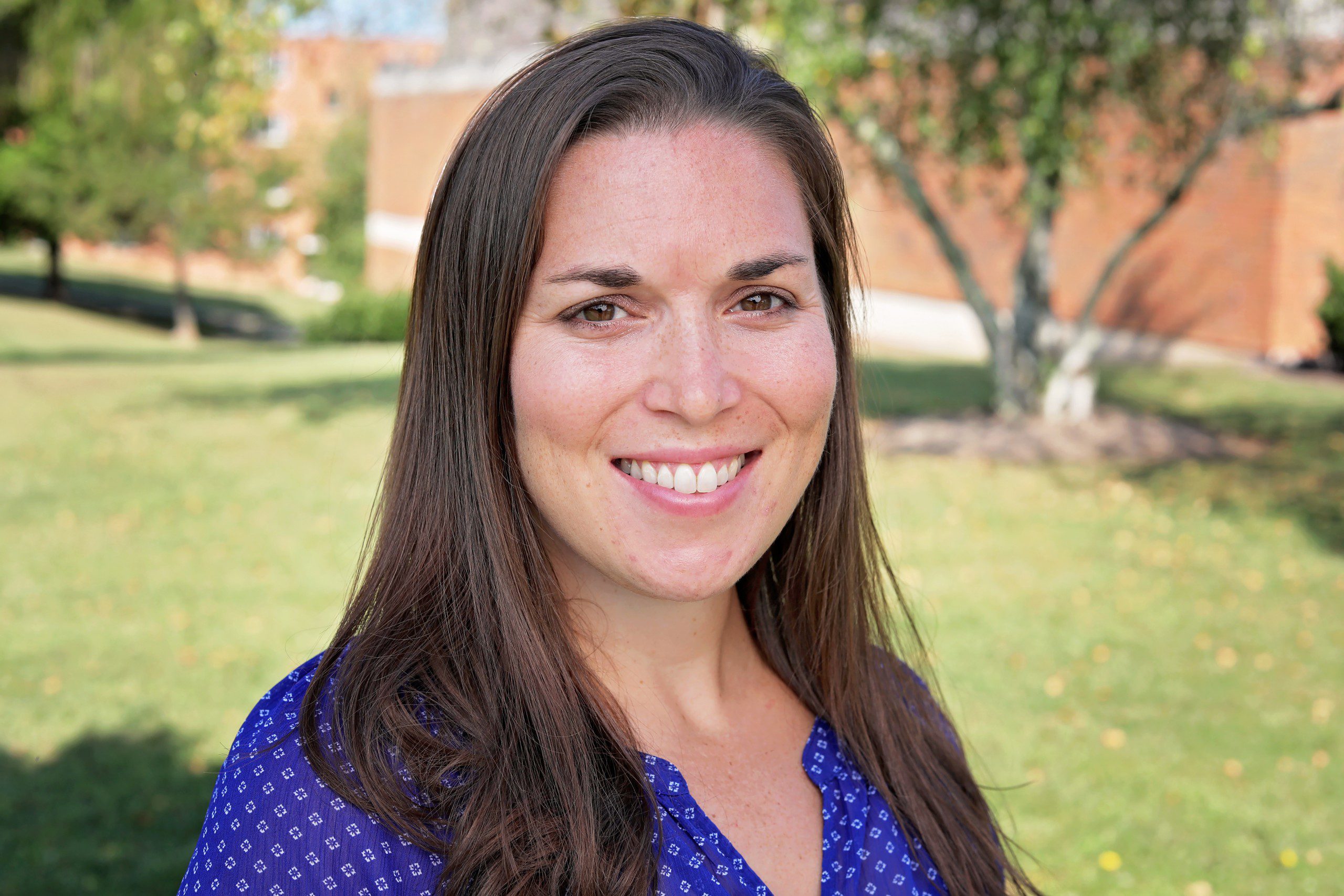
Wamsley, Laura
Athletic Training Program Director and Assistant Professor of Athletic Training
304-384-6264
Email Me

